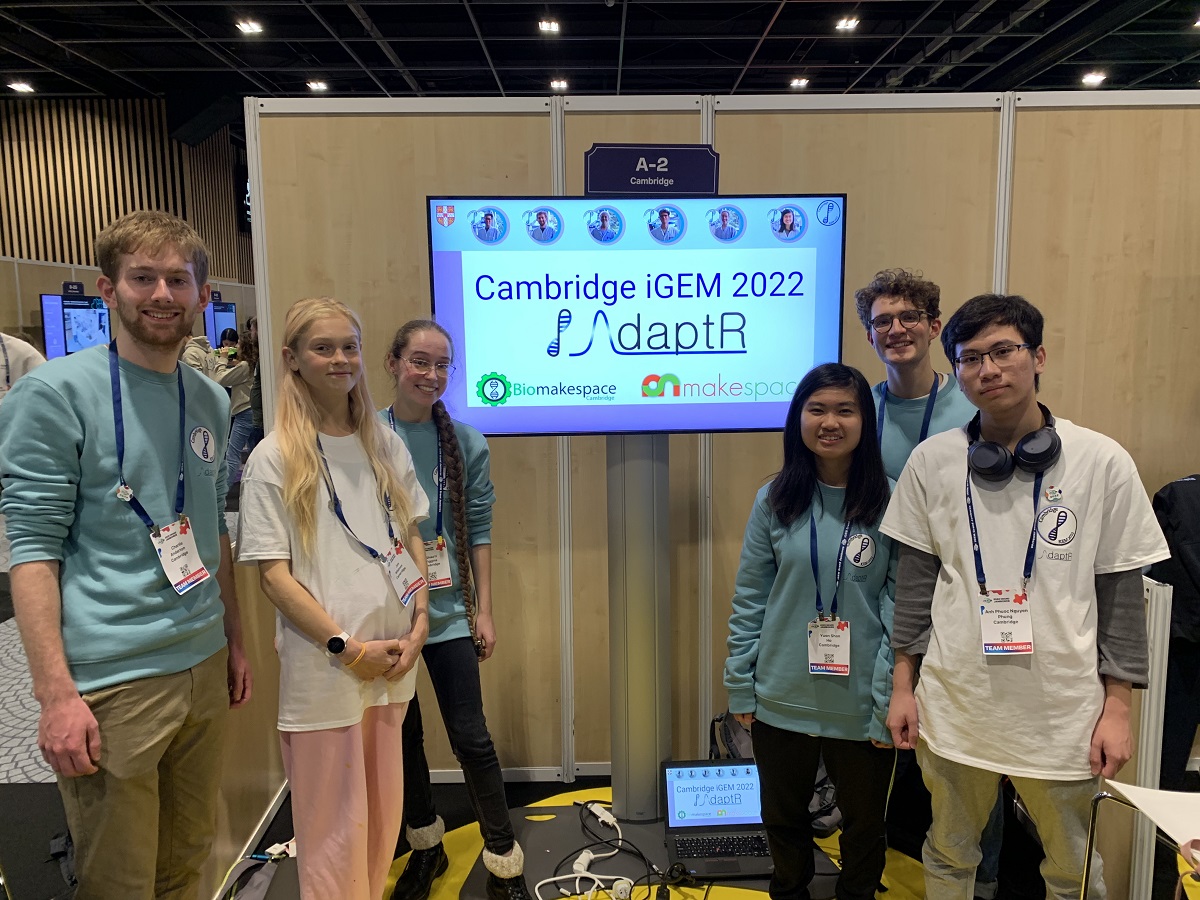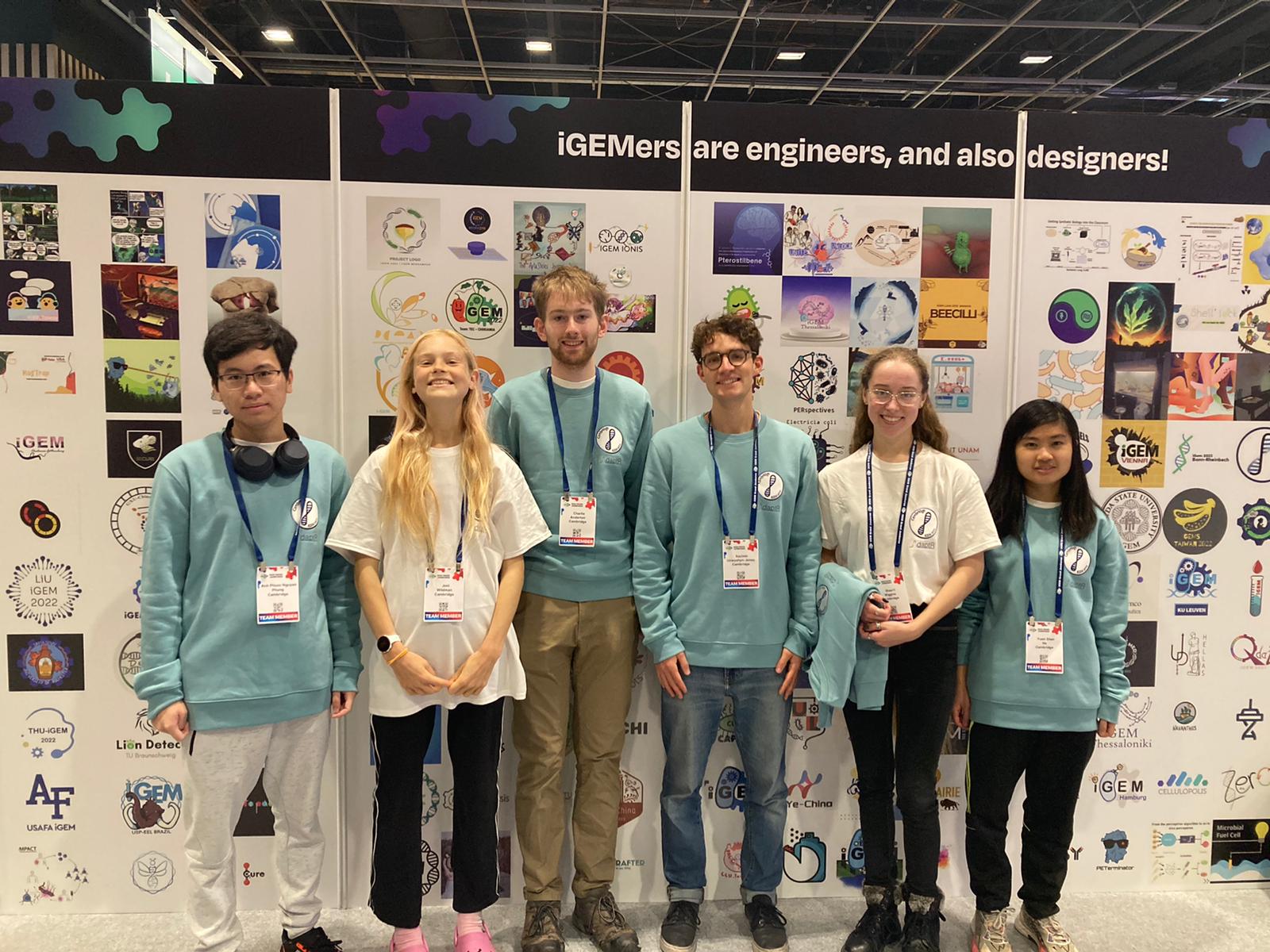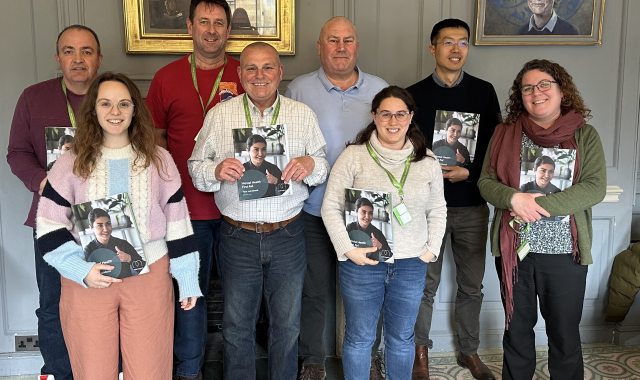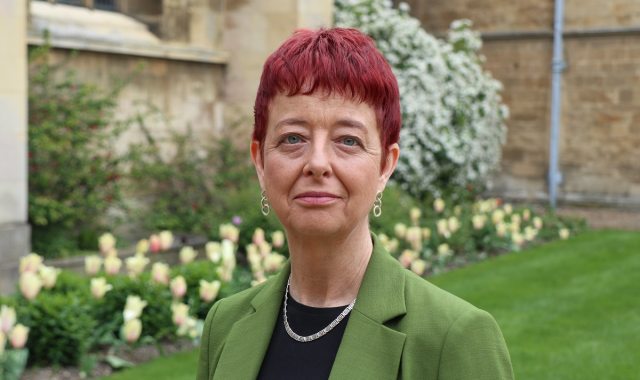Medical engineering in academia and for fun
- 08 November 2022
- 3 minutes
An interdisciplinary fascination has led Sharon Ho (Medicine 2019) to explore beyond her chosen subject.
Sharon is intercalating in a Masters of Engineering between her pre-clinical and clinical medicine studies. Her interest in medical technology includes machine learning, artificial intelligence and synthetic biology, which uses engineering principles to redesign organisms.
She was a member of the University of Cambridge’s first iGEM team since 2016.
The iGEM Foundation is an independent, non-profit organisation dedicated to the advancement of synthetic biology.
The Jamboree, which took place in Paris from October 26 to 28, saw multidisciplinary student teams at High School, undergraduate and postgraduate levels competing for prizes by designing, building and testing projects using synthetic biology.
“It’s a very good experience joining iGEM,” Sharon says. “Not only do you conduct research over the summer, but you need to collaborate with teams from all over the world.”
The revived Cambridge team, pictured above, is a completely student-run team from the Cambridge University Synthetic Biology Society, and featured Natural Scientists specialising in biology and physics, plus Sharon as a medical student-engineer. They were supervised by PhD and MPhil students from a range of specialisms across Cambridge and also took part in education and outreach initiatives.
“We have a YouTube channel and I made some videos to promote synthetic biology, control theory,” Sharon adds.
“Synthetic Biology is truly a multi-disciplinary field. Our iGEM project AdaptR is a foundational advance project which involves applying control theory to design genetic circuits that allows a constant gene expression level.
“We need both people who can do lab work, people who model and analyse the system and people who do education and outreach activities. iGEM is a very unique learning opportunity as we get to learn to design and plan experiments ourselves, document the results onto our own Wiki, as well as project management skills.”
For more details of the project, please see the team’s wiki: https://2022.igem.wiki/cambridge/index.html
Sharon adds: “At the Jamboree, we presented our work to the synthetic biology community, promoting the importance of applying control theory to synthetic biology. It is also amazing seeing projects, ranging from therapeutics, food and nutrition, to environment, from other teams all over the world and meeting like-minded people.”
The Cambridge iGEM 2022 Team received a Gold medal at the end of the event and received a nomination for the New Best Basic Part Award.
Sharon is enjoying applying her mathematical interests in engineering and in combination with her medical knowledge. She is uncertain which medical specialism she will pursue, but is looking forward to beginning her clinical studies, once she has completed her Engineering masters.
She adds: “I like learning the science, but I’m really looking forward to meeting patients and seeing how the whole thing works. I want to know more about how the NHS works and compare it to what it’s like in Hong Kong, where I am from.”




